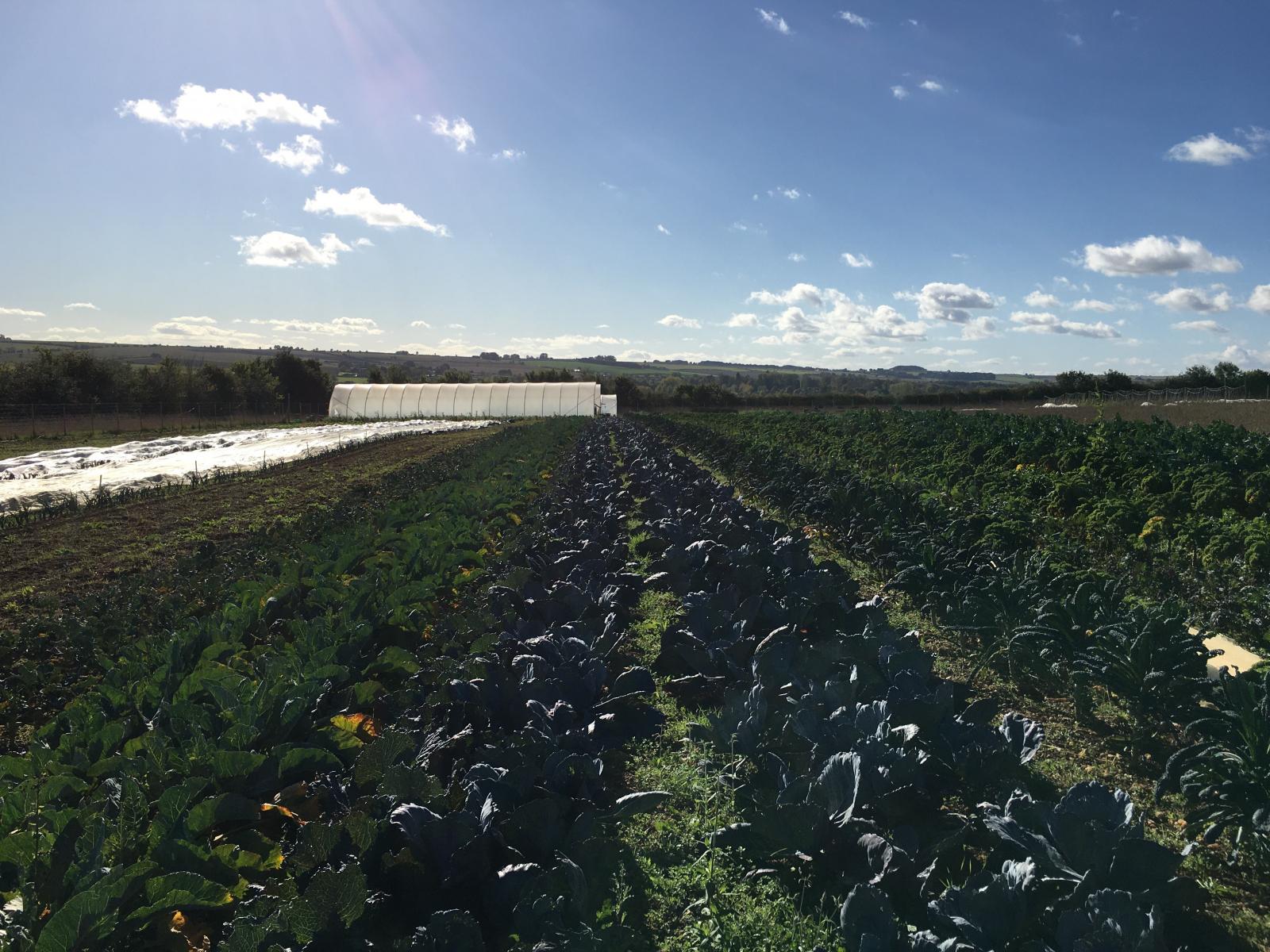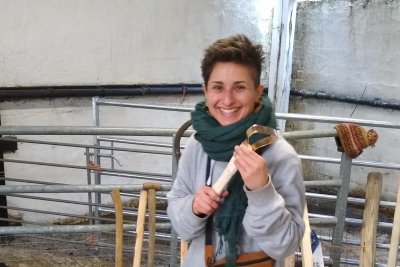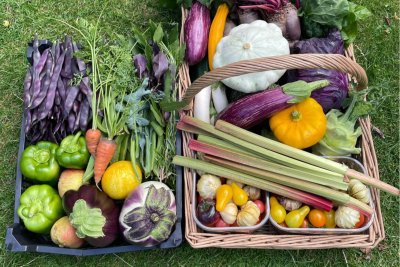Blogs • Sustainable Farming Campaign
ELM under fire but is there light at the end of the tunnel?
Defra have been making progress on the Environmental Land Management (ELM) schemes, but several inquiries have highlighted hurdles that need to be overcome to make it a success. What have they said and where could ELM go next?

In the past 6 months, three official reports by the National Audit Office, EFRA Select Committee and Public Accounts Committee, have given a verdict on the progress of the Environmental Land Management (ELM) schemes. In general, they have given a fairly stark warning to Defra that progress has been too slow and many key elements are still missing.
A brief recap: ELM schemes are supposed to be based on the premise of ‘public money for public goods’. They are being designed at three levels: Sustainable Farming Incentive (SFI), Local Nature Recovery (LNR), and Landscape Recovery (LR). They will pay farmers to take either more sustainable farming actions, provide greater public engagement, or make more wholesale land use change for climate and nature. They are being piloted and evolved over the next three years before full roll out in 2024/25.
All three reports have come at a time when Defra need to show they are on track and ready to deliver. In the spring, they will launch the first iteration of the Sustainable Farming Incentive (SFI) scheme. It will be a narrow and basic version of the scheme, but an opportunity to see if all farmers will engage with it. This comes after the start of the first ELM National Pilot in the autumn of 2021, focusing on the SFI scheme. While Defra managed to get over 900 farmers participating in the pilot, it was arguably below what was hoped for, and we are yet to see how the pilot is going thus far.
This year, we also expect Defra to launch the ELM National Pilot on the LNR scheme, as well as initiate the first round of LR projects. In that sense, with everything that is going on across the ELM schemes, 2022 is a vital year for Defra, farming policy and farmers themselves. Towards the later stages of 2022, we should have a much better picture of what the schemes look like, how they work, how they interact with each other (and other policies), and whether farmers feel it is worth their while.
What do these reports say?
Overall, all three reports do not provide happy reading, but there is cause for some optimism. They suggest that Defra has not made enough progress, is being too inflexible in their approach, has struggled to communicate effectively to the farming sector, and do not understand the impacts to farms and the environment, nor how success will be monitored and value for money gained. The Public Accounts Committee (PAC) describe the current situation as “blind optimism” in the deliverability and effectiveness of the schemes. In other words, they suggest Defra do not have a plan and do not know how things will go.
The National Audit Office (NAO) report was published on 15th September 2021 and highlighted several hurdles to overcome for ELM to progress successfully.
- ELM is not yet underpinned by a robust set of objectives [to date these are yet to be published] and Defra’s focus is too short-term.
- There is yet to be a clear explanation on how Defra will aim to tackle fraud and error, nor how they are delivering cost savings and value for money.
- The NAO also reports that Defra have some way to go to rebuild trust with farmers and garner enough enthusiasm to hit participation targets.
The EFRA Select Committee report was published on 28th October 2021 and similarly explained certain issues facing farmers and whether Defra have progressed enough.
- Defra need to publish impact assessments of the agricultural transition plans at both a regional and sector level.
- Concern that the approach to ELM could push farmers into pursuing more intensive farming approaches rather than engaging in ELM schemes, as BPS payments are cut.
- That an insufficient amount of care has been given to the timeline, meaning several delays have not coincided with delaying parts of the transition.
- Defra must ensure that schemes are workable for tenants and commoners, rather than trying to push them into a scheme designed for owner-occupiers.
- That there is a lack of facilitating knowledge exchange (i.e. advice) and peer-to-peer learning which could be critical in getting many farmers into schemes.
The Public Accounts Committee (PAC) report was published on 9th January 2022 and highlighted a number of issues that Defra face in introducing the new schemes.
- No details on how Defra plan to increase farm productivity to free up land nor what environmental benefits will be delivered from their approach.
- A lack of communication is hampering opportunities to garner interest and build already ailing trust between Government and the farming sector.
- The report describes the approach as “blind optimism” without details nor providing enough information for farmers to plan.
- Defra have not set baseline metrics or robust objectives to show how it will measure the success of schemes.
- Nor have they shown how the £2.4 billion annual payments are value for money and will support delivery of wider environmental targets like net zero.
But are there reasons to be optimistic?
The answer is yes, at least if you are willing to see beyond the pitfalls to a time where these issues have been ironed out. In December, Defra released further details on the progress of ELM and what to expect between now and 2024/25. In that, we saw an indicative commitment to provide support in the SFI scheme for organic farming, integrated pest management, agroforestry, orchards and farmland biodiversity. This is something to be hopeful about. There is also a team in Defra who are genuinely trying to get things right and are working hard to take on the complexities of creating such widescale policy change.
What are farmers saying?
Most of the farmers we have spoken to express concern and confusion about the schemes. This is mostly down to the complexity caused by having many schemes running at the same time, old and new, coupled with insufficient and ineffective communication, and no real vision of how this all fits together. The free Future Future Farm Resilience programmes are great but not reaching enough farmers.
Others have suggested that SFI 2022 payment rates are too low and could be a barrier to entry. This seems to be the case for the Moorland and Rough Grazing Standard, but famers interested in the two soil standards have had similar concerns. Further to this, many farmers have shown disappointment in the lack of ambition, and that they are already doing what is required in the SFI 2022 standards plus much more. For this year, Defra have decided to not offer the higher-level of the standards.
Farmers and others in the farming sector have also told us that the decision not to offer advice is hugely frustrating. While some farmers will be able to enter the scheme and deliver without that level of support, many want this type of support to help them enter and get the most out of it. This will especially be the case in future years when Defra are offering a better SFI scheme alongside the LNR scheme.
Further to the above, farmers and land managers are frustrated that Defra haven’t provided any real information on the Local Nature Recovery (LNR) scheme. This is meant to replace Countryside Stewardship and is therefore important to a lot of farmers and land managers. For instance, farmers want to know what it will pay for, how it will enable collaboration, and how the SFI and LNR schemes will work together, while not blocking opportunities for farmers and land managers to access other forms of financial income linked to delivering for the environment.
Another building concern is around how the Landscape Recovery (LR) scheme will function. Tenant farmers are concerned that landlords will push them off the land to access this support; we don’t believe this is the right approach and could undermine the environment, social or economic value provided by the farm diversity we have. There is general concern that it could also consolidate more land under the ownership of fewer people.
What would Sustain and its members like to see coming through ELM?
- Defra must set out a vision that shows how the agricultural transition plan (ATP) and ELM schemes will leave farming, landscapes and the environment in a better place at the end of 2027.
- A robust set of objectives must be published which shows how the ATP and ELM schemes will deliver all the public goods set out in the original plan, and value for money for the taxpayer in the short and longer term and how this will be assessed on farm.
- A so-called detailed “flightpath” must be set out which helps farmers navigate the complexity of farming schemes and grants over the 2022-27 period, so farmers can decide which options are best for them and delivery of public goods.
- Defra must be flexible in their approach to the SFI and LNR schemes to provide support on both an asset-based approach (what is used now) and a system-based approach.
- Defra need to set out a longer-term plan showing how ELM will support a transition to whole system agroecological farming in the future, with a clear outline of how the SFI and LNR schemes will interact and complement each other to this end.
- Additionally, Defra need to get over the hump of not being willing to offer low-cost independent advice to farmers over the agricultural transition period while the new SFI scheme beds in. It would go a long way towards getting buy-in.
However, the new ELM schemes are not the only thing on farmers’ minds. The direction of trade negotiations is serious cause for concern, as farmers worry that their businesses and the environmental schemes will be undermined. The deals that have been agreed with Australia and New Zealand paint a very uncertain and worrying future for British farmers and citizens alike. The Royal Agricultural Benevolent Institution found that 40% of farmers were stressed about the future of trade deals in The Big Farming Survey.
Furthermore, we are yet to see anything from this Government that will work towards tackling the unfairness and opaqueness of the UK’s agri-food supply chain. Farmers have had to bear the brunt of supermarkets for too long and it is time we enabled a future where more resilient, fairer and shorter supply chains can regain much of the market share.
Finally, there is no sign of the UK Government placing food and farming on the climate agenda. Farming is rare in the sense that it can very much be a carbon negative sector. Farmers want to play a role in tackling the climate and nature emergency, and there’s plenty of opportunities to produce healthy food in a way that can do so.
On that note, it is time that national and local Government started to think creatively, innovatively and in a joined-up way when it comes to policymaking of all kinds – including food, farming and the environment.
Published Thursday 13 January 2022
Sustainable Farming Campaign: Sustain encourages integration of sustainable food and farming into local, regional and national government policies.





